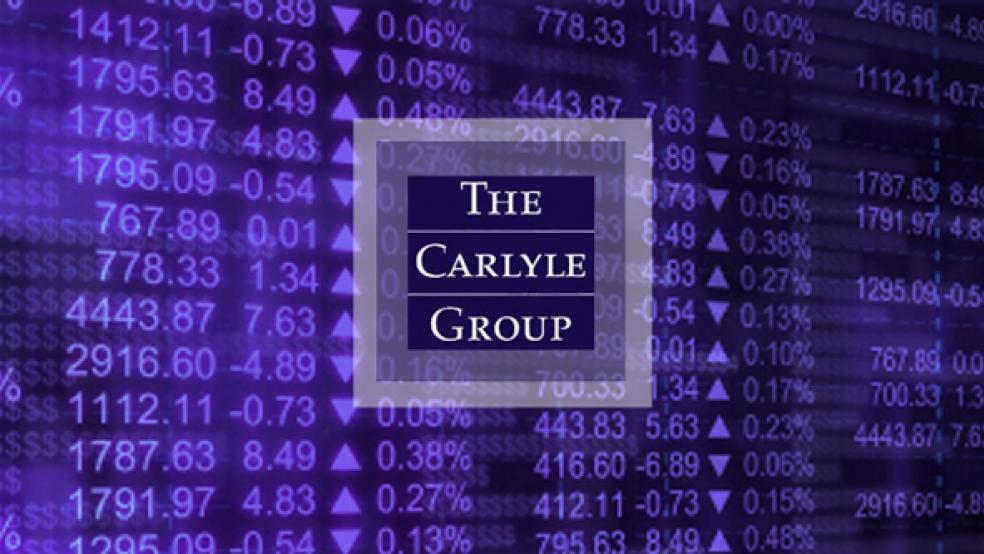Private equity companies have proven to be very successful, by and large, at executing leveraged buyouts, overhauling the portfolio companies that they acquire and reselling them at a hefty profit for their fund investors and their own executives. Take HCA Healthcare, for instance: when that buyout was structured, shortly before the financial crisis, debt investors wrinkled their noses, perplexed at how the $21 billion deal would work. Four years later, in 2011, the group of investors involved (including Mitt Romney’s former firm, Bain) oversaw a blockbuster IPO of the “new” HCA Holdings (HCA) – priced its IPO at the high end of its range and sold more shares than expected.
Too bad, then, that the private equity industry has met with far less success in making itself appealing to those same types of investors. One after another, private equity management companies – the parts of the business that manage all the funds and structure all the deals – have gone public only with difficulty, and most have lost money since making their debuts. The Blackstone Group (BX), which priced its shares in what may have been the final week of irrational market exuberance before the first wave of the financial crisis hit in the summer of 2007, now changes hands 56 percent below its IPO price.
The latest company to hazard the IPO market is Carlyle Group (CG), the granddaddy of the private equity industry. Founded in 1987, the firm is noted for not only its business connections but its high-powered political network, and does business on every continent in the world, with the sole exception of Antarctica. (Maybe that’s just a matter of time, and they’re pondering a deal proposed by that region’s population of Emperor penguins?) It isn’t a pure private equity play any more, either. It has long been an investor in venture capital in Silicon Valley and it runs credit funds and hedge funds. Its investments include well-known brands: if you have picked up a cup of coffee from Dunkin’ Donuts (DNKN) or gone to a movie at an AMC theater, you’ve contributed to profits at a Carlyle portfolio company.
And yet…when Carlyle priced its IPO earlier this week, it was a struggle for underwriters to whip up much interest; the stock units sold ended up being priced at $22 apiece, at the low end of the range, raising only $671 million for the firm. (The proceeds go to the company, not its founders, who will have the option of selling shares later but who aren’t selling as part of the IPO.)
Since its trading debut yesterday, Carlyle stock has risen only a few pennies above that level – and that is with the help of the traditional aftermarket support provided by underwriters in the first day or two of trading. At least it is faring better than Apollo Global Management (APO) and Oaktree Capital (OAK), both of which posted losses on their first day of trading. Even so, it’s certainly not a stretch to imagine that Carlyle’s stock will follow other private equity IPOs and begin to trade below the offering price in the not-too-distant future.
Certainly, Carlyle has tried hard to avoid that fate. The company has priced the deal at a discount to try to get it off to a flying start and prove that a private equity company that is publicly traded isn’t an oxymoron. (Blackstone and KKR currently trade north of double the valuation of Carlyle, based on how much each of the three firms earns in “distributable capital.”) But even pricing at the bottom end of the speculated range – and below the original official range of $23 to $25 – hasn’t paid off. Neither has offering extra treats in terms of dividends.
A big part of the problem is that a private equity’s only assets – much like those of an investment bank – are its people, who walk out the doors every evening. But compared to an investment bank, the business model of a private equity fund is even more volatile and opaque in the eyes of investors.
Then there are the optics of these IPOs. If public equity markets aren’t efficient – the whole raison d’etre behind the creation of these buyout funds – then why do firms like Carlyle want to go public at all? The most easily understood answer is that it’s a kind of estate planning for the generation that founded them, who are now in their 60s or older. Having public securities to pass on to heirs or to sell to provide heirs with a diversified portfolio is just common sense, especially in the private equity business. After all, even if these folks have children who are interested in finance, the odds of them developing the interest and skill set to oversee a giant private equity group are de minimis. It’s not like taking over your father’s steel mill, hotel chain or retail empire. And the buyout firms have never addressed this perception squarely, and argued why it isn’t a valid one.
Certainly, the only folks likely to be feeling festive at this stage are the Carlyle Group’s partners – more than 100 of them – who are now members of the millionaire’s club, officially, at last. Now that the stock has a public value, it’s much easier for them (and for us) to calculate their wealth, and for them to sell their shares when lockups expire later this year. But then, the private equity business has never been about rewarding outsiders.






